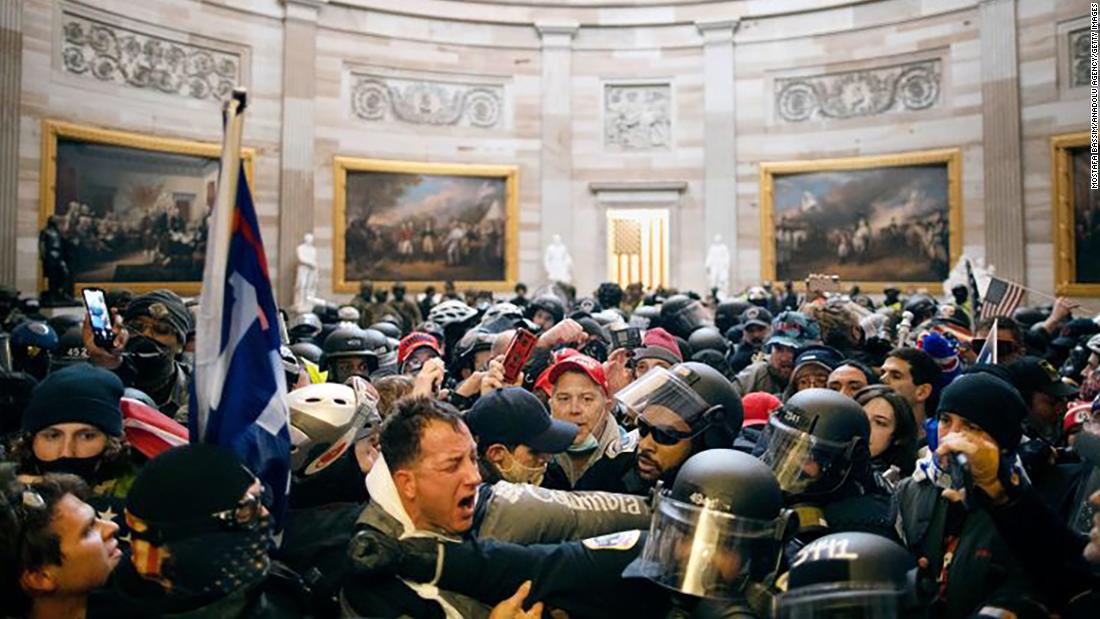Understanding The Tragic Events Of January 6th: How Many People Died On January 6th?
The events of January 6th, 2021, are etched in the minds of many as a day marked by chaos and tragedy. A significant moment in American history, this date saw a violent insurrection at the U.S. Capitol, where supporters of then-President Donald Trump stormed the building in an attempt to overturn the 2020 presidential election results. As emotions ran high and tensions escalated, the day resulted in a profound impact on the nation, leading many to question not just the motivations behind these actions but also the human cost of this upheaval.
Amidst the turmoil, one of the most pressing questions that arose was, "how many people died on January 6th?" This inquiry serves not only as a reflection of the day’s severity but also as a reminder of the lives affected by the events that transpired. The chaos of that day claimed lives, and the repercussions continue to resonate throughout the country, shaping political discourse and public sentiment.
As we delve deeper into this harrowing topic, it is crucial to not only focus on the numbers but also to understand the broader implications of what transpired. The loss of life and the events leading up to it warrant a thorough examination to honor those who were lost and to learn from the past.
Read also:Simon Cowell The Man Behind The Music Industrys Biggest Stars
What Happened on January 6th?
The day began with a rally where President Trump addressed his supporters, reiterating claims of a stolen election. Following his speech, a large crowd marched towards the Capitol, where Congress was in session to certify the Electoral College results. As the mob breached security barriers and entered the building, chaos erupted. The situation quickly escalated as rioters vandalized offices, clashed with law enforcement, and disrupted the democratic process.
How Many People Died on January 6th?
On that fateful day, five individuals lost their lives due to various circumstances related to the insurrection. The fatalities included:
- A Capitol Police officer who died from injuries sustained during the riot.
- Another officer who later died by suicide.
- A rioter who suffered a medical emergency.
- A woman who was shot by law enforcement while attempting to breach a barricaded door.
- A man who died of a drug overdose during the chaos.
Who Were the Individuals Who Died on January 6th?
The lives lost during the January 6th events were diverse, each with their unique backgrounds and stories. Here’s a brief overview of some of the individuals:
| Name | Age | Affiliation | Cause of Death |
|---|---|---|---|
| Brian Sicknick | 42 | Capitol Police | Injuries sustained during the riot |
| Ashli Babbitt | 35 | Trump supporter | Shot by law enforcement |
| Kevin Greeson | 55 | Trump supporter | Medical emergency |
| Benjamin Phillips | 50 | Trump supporter | Medical emergency |
| Jeffrey Smith | 35 | Capitol Police | Suicide |
What Were the Reactions to the Deaths on January 6th?
The deaths incurred during the January 6th insurrection sparked widespread outrage and grief. Families mourned their loved ones, while the nation grappled with the implications of these tragic events. Social media erupted with discussions about the responsibility of those who incited the riot, and calls for accountability echoed throughout the public sphere.
How Did January 6th Impact Law Enforcement?
The events of that day significantly impacted law enforcement agencies across the country. The Capitol Police faced intense scrutiny over their preparedness and response to the insurrection. Many officers reported experiencing trauma and stress due to the violence they encountered, leading to discussions about mental health support for those in uniform. Additionally, the events prompted a reevaluation of security measures for future gatherings and events at the Capitol.
What Changes Were Made After January 6th?
In the aftermath of January 6th, several changes were implemented at both the Capitol and in broader law enforcement practices. Some of these changes included:
Read also:Exploring Kaitlan Collins Husband Nationality A Complete Overview
- Increased security measures and personnel at the Capitol.
- Enhanced training for law enforcement to handle large crowds and potential riots.
- Legislative discussions around the need for reform in the areas of accountability and oversight for law enforcement.
What is the Legacy of January 6th?
The legacy of January 6th is complex and multifaceted. It serves as a stark reminder of the fragility of democracy and the importance of protecting it. The day has become a symbol of division within the United States, raising questions about political extremism, misinformation, and the consequences of unchecked rhetoric. As the nation continues to reckon with the events of that day, the memory of those who died serves as a poignant reminder of the need for unity and understanding.
How Can We Honor Those Who Died on January 6th?
Honoring the individuals who lost their lives on January 6th involves reflection, education, and advocacy for a more peaceful and inclusive political climate. Here are some ways to honor their memories:
- Engage in open dialogues about the importance of democratic values.
- Support initiatives aimed at preventing political violence and fostering understanding.
- Participate in memorial events that remember the victims of January 6th.
In conclusion, the question of "how many people died on January 6th" is not merely about numbers; it is about the lives lost and the impact those losses have had on families, communities, and the nation as a whole. The events of that day continue to serve as a critical point of reflection as we move forward, striving for a future that honors the principles of democracy and unity.
Article Recommendations


